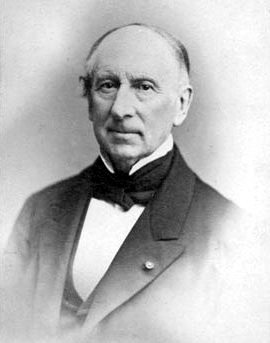For example, Descartes wrote several volumes rationalizing answers for every single scientific problem he could think of and then proceeded to proclaim that he had discovered everything. Literally, he said that. But at the very least he intended to understand the world around him.

Modern physicists make the exact same guesses, only mathematically more sophisticated, but they don’t care about explaining reality. All that matters to them is to create a model, they say, that predicts numbers, and the less conceptual they get, the better; this is known as the “shut up and compute” principle.
This is, of course, a losing strategy for science, but they get their peers’ appraisal.
Ironically, however, mathematicians know that you can always make a model sophisticated enough to account for any data, but that doesn’t mean it’s a good model if you can’t make any sense out of it.
For example, I could write down a set of equations explaining in detail when and how the light inside my fridge will turn on and off as I open and close the door, but have I actually learned anything about why it behaves so?
I could claim that a ghost is operating the light, and my equations would not be able to contradict that because all they do is predict results rather than explain the facts.
String theory does exactly the same thing and that’s why I consider that neither of those are even scientific in nature. They’re more like mystical claims, epistemologically speaking.
Ashna: I think the ghost theory might make more sense than string theory. Or, at least be easier to understand.
7) Who is your favorite figure in physics?
Probably saying ‘Newton’ would be too uninteresting as we all know of his genius, and some of the audience will even be familiar with his work in the epistemological field of induction. So, to be a bit more of a romantic spirit, I will say ‘Ludwig Boltzmann’.
He vigorously fought for the relevance of philosophy in scientific activity, against the rising positivist current of his time, led by Ernst Mach. So, he was quite a hero in my view.
He laid the foundation for, and then developed, statistical mechanics, which is the link between microscopic and macroscopic behaviour of physical systems. It is such an important core theory, because, for example, the existence of atoms could be proven in this way. So, this was actually the greatest feat in the 19th century. So considered by all, nearly all, historians of science, because it was a causal explanation
And then, in his time, causal explanations were severely disregarded, so the arrival of atomic theory as a proper, integrated explanation of microscopic was delayed because of the opposition to Boltzmann’s views. But he defended it to the bone.
But, regardless of the outcome, he stood against a great philosophical danger
Ashna: Boltzmann, he made my favorite list too, for basically the same reasons!
8) Least favorite figures?
Now it’d be a perfect moment to say ‘Ernst Mach’, but he wasn’t even a scientist.
On the other hand, Descartes was so thoroughly wrong it’s funny to read him. It is so funny, I don’t really hold any real antipathy against him.
So, I’d say modern physicists get the worst of me. And particularly Stephen Hawkins’ figure has been remarkably damaging Fto the philosophy of science.
He even claimed that philosophy was dead and science had to take over. He could get eloquently scornful with opposing views, to the delight of his followers, many of which, not versed in science, would absorb and spread this Neo-positivist viewpoint beyond the realm of science.
So, I think he was particularly damaging. And I think he was also quite overrated. If you look through his scientific feats, I think that the most important one was Hawking Radiation.
Yeah, I think he would be my least favorite figure.
Ashna: Yeah, Feynman agreed on that, and so do a lot of physicists.
Juanma: Yeah, it is a pity, right? Because Feynman was such a great guy. Maybe he had just absorbed too much of the philosophies of his time, he wasn’t that much to blame.
Ashna: Ernst Mach did not make my list, but only because he was not, as you point out, a scientist. But, he certainly deserves to make one of the lists.
9) Which figures in physics and or math have been the most influential?
The most influential have been those who have made a philosophical difference. There have been great mathematicians who have pushed their fields forward enormously: Gauss, Riemann, Euler…
But their mathematical feats aren’t very influential: they are technical, foundational, deep and extremely useful, but I think being influential here is changing the way the whole subject is approached, for good or bad. In this, Newton and Cauchy, to mention some, have been really influential, have really made a difference.

Cauchy, for example, found a way of dealing with limits without ever appealing to the invalid concept of ‘infinity’. By that time engineers would rationalize the theory of limit taking by canceling infinities out and things like that.
Cauchy found the way around this and thus laid the foundation not only for mathematical analysis, but also for the modern standard of mathematical rigor. S,o he really made a difference in the whole field of mathematics.
As for physics, and aside from Newton… Albert Einstein and Niels Bohr have been influential characters. Although promoters of unreason in science, each in his own way, the truth is that they paved the way for a change in the way scientists work.

